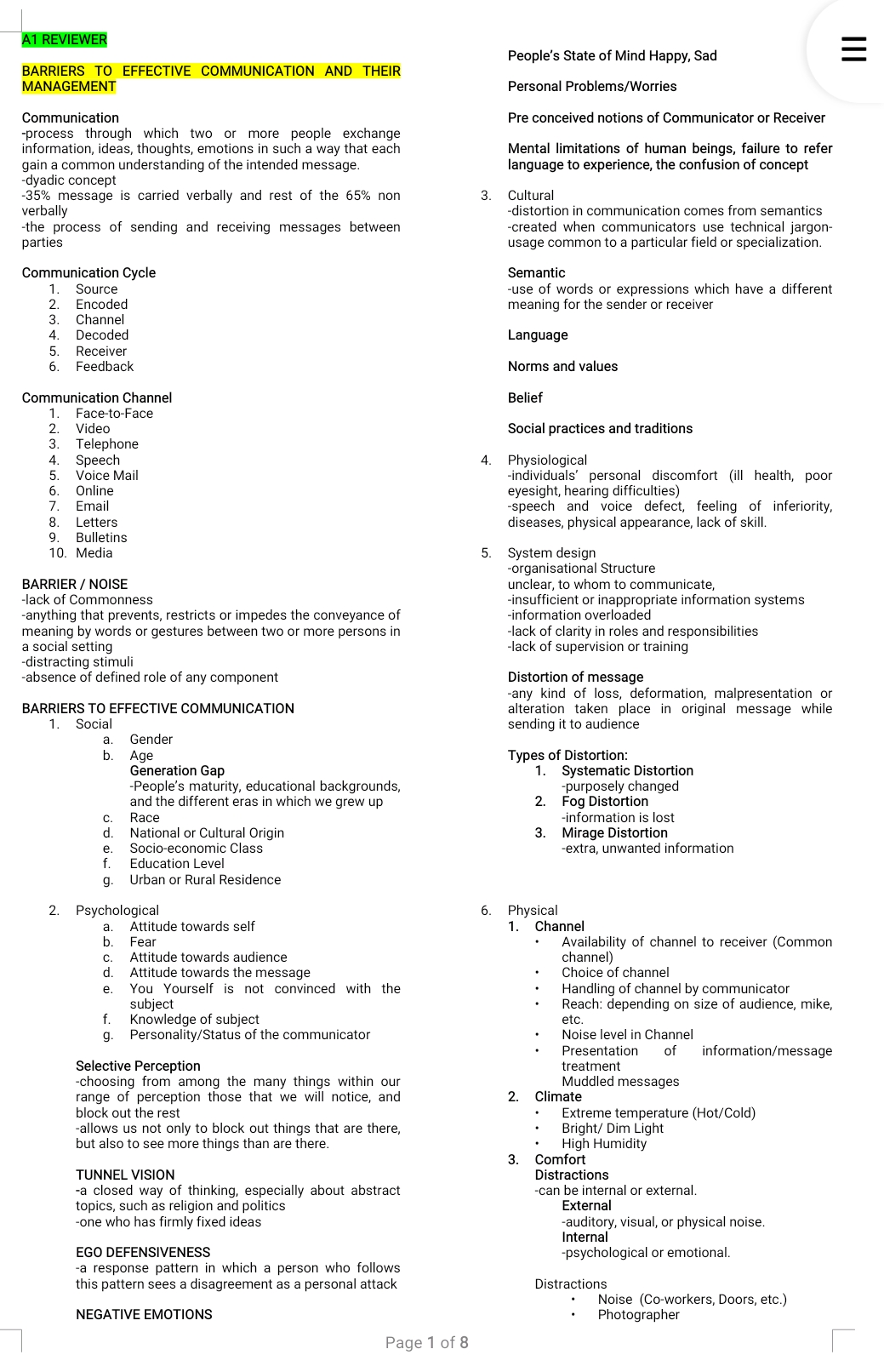What are the barriers to effective communication and how can they be managed?

Understand the Problem
The question appears to be focused on the barriers to effective communication and their management. It lists various factors that impede communication and the implications of these barriers.
Answer
Barriers to effective communication include social, psychological, cultural, semantic, physiological, system design, and physical barriers.
The barriers to effective communication include social, psychological, cultural, semantic, physiological, system design, and physical barriers. Managing them involves understanding the communication process, active listening, being aware of and addressing these barriers, and using feedback effectively.
Answer for screen readers
The barriers to effective communication include social, psychological, cultural, semantic, physiological, system design, and physical barriers. Managing them involves understanding the communication process, active listening, being aware of and addressing these barriers, and using feedback effectively.
More Information
Effective communication is crucial in both personal and professional settings. Understanding and addressing the various barriers can greatly enhance message clarity and understanding.
Tips
Common mistakes include ignoring the feedback loop, neglecting the context of the communication, and not being aware of the potential barriers present.
Sources
- 12.4 Communication Barriers – Principles of Management - open.lib.umn.edu
- Common Communication Barriers (With Examples and Tips) - Indeed - indeed.com
- Barriers to Effective Communication | SkillsYouNeed - skillsyouneed.com
AI-generated content may contain errors. Please verify critical information